#12: Are You Still Watching? TIFF Round-Up 🎥
In The Mood's contributors and editors share what they watched at—or instead of—the festival. Plus: save the date for our launch party!
Save The Date: Issue 8 Launch Party 😈
October 24 ◦ Houndstooth (818 College St, Toronto) ◦ 7:00 pm
Join us for an evening of readings and games to celebrate the launch of Issue 8: Moods! Mark your calendars and stay tuned for more details 👀
TIFF Round-Up 📽️
Our staff and contributors break down the highlights and letdowns of this year’s Festival (and what one editor, who stayed home, watched instead).
GABRIELLE MARCEAU



I haven’t deliberately woken up at 6 A.M. in a very long time. But the festival opened with an 8:30 A.M. screening of Anatomy of a Fall, Palme d’Or winner (and what is TIFF if not a chance for Canadians to see Cannes titles early). The endless-seeming line of press people was rushed into a big, hot (the air conditioner hadn’t kicked in yet) theatre at Scotiabank Cinema. After finding a seat to the far right of the second row, we were barked at by already frazzled volunteers: “People in the bathroom have two minutes to get back before we give away their seats.” Two and a half hours later, the polite hunger games continued as we tried to overtake each other (without outright pushing) to secure seats in a smaller theatre for the other buzzy Cannes film, Jonathan Glazer’s The Zone of Interest, a formally rigid Holocaust film about a family who lived in pastoral ease just on the other side of the walls of Auschwitz. Slightly stunned applause, exodus into the garish lobby for some badly needed sustenance (coffee, 5$ bottle of water).
That afternoon, I was waiting in a quarter-full theatre for Robot Dreams to start, when a young man walked in, faced the audience, and said out loud: “Look at all these people, dreaming about robots.” The animated film follows a dog who ends up having to leave his robot best friend alone and immobile on the beach all winter. If that premise sounds sad to you, it doesn’t really hit that hard after seeing Zone. I write my review over a beer at a nearby pub near some already drunk guys.
The next day, after a morning screening of the absolutely abysmal Gonzo Girl, I settled in for the almost 3-hour Do Not Expect Much from the End of the World, a Romanian experimental film that follows an advertising agency production assistant’s workday as she records PSAs with employees injured in factory accidents and posts surreal edge lord Instagram stories as a chauvinistic, Putin-supporting alter-ego. It’s one of the most lucid, funny stabs at the “current moment”, never quite collapsing under the weight of its own irony. I then fell asleep during The Human Surge 3 but was certainly awake after the horrifyingly tense opening scene of Anna Kendrick’s (surprisingly competent) Woman of the Hour—go read the insane premise—watched in a room full of buyers and producers. The next day, I heard it had sold for 12 million to Netflix.
8:30 Sunday morning, I saw the very amusing (but ultimately a bit toothless) cancel culture dramedy, Dream Scenario. And then to The Royal Alexandra Theatre (my fave, the ushers chastise you for using your phone during the movie) for Atom Egoyan’s Seven Veils. Kind of dumb and not really convincing but completely irresistible and weird. I am powerless against a backstage drama and a troubled woman!
Two days later, in one of the front rows for Evil Does Not Exist, I chatted with the man next to me. “What have been your favourites so far?” “Gonzo Girl” he replied. I ran into four friends at the following screening of the carefully calibrated and totally fabulous Last Summer, and I drank a shitty glass of prosecco before rushing to a press screening of Aggro Dr1ft (disappointing, hot theatre, another 5$ bottle of water).
Let me skip ahead to my last day and the balm of Aki Kaurismäki’s Fallen Leaves. It looks fantastic; wonderful use of primary colours (somewhere between IKEA and Memphis Milano, but good) and expressive lighting borrowed from a much moodier film. It was so lovely that when I stopped by Starbucks afterwards to write, I couldn’t handle the lack of ambiance and walked home.
Gabrielle Marceau is a writer, critic, and the Editor in Chief of In the Mood Magazine.
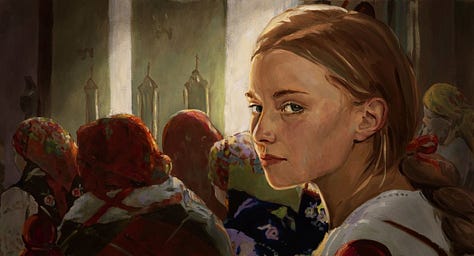

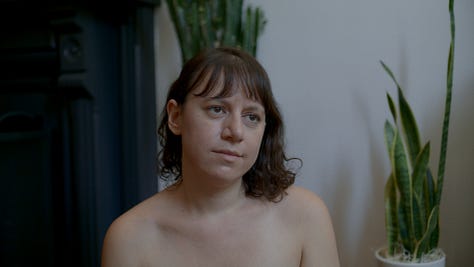
QUINN HENDERSON
It’s 9 A.M. on Thursday; damp with sweat and running on three hours of sleep, I have an hour to mingle at the press and programmer’s brunch before my day job. By trade, I am a business newsletter writer—an exemplar of Keynesian makework that pays my bills and affords me such privileges as a press pass to TIFF. I am blessed, but at every turn, I feel compelled to apologize for this fact. I was a reluctant intruder, and I carried this frantic energy into my screening selections. Unable to go to any screening before 5 P.M. on the weekdays my viewing experiences were scattershot. Luckily, I came across some gems. But let’s start with a pan.
The Peasants consists entirely of some 40,000 oil paintings, and I want to say I respect the artists who put in god knows how many hours of painstaking labour to make this. With that out of the way, what a piece of shit. Reductive, dull, repellent, and sure to rack up awards noms, this adaptation of a Polish novel is the definition of form for form’s sake—a feature that takes zero creative risks outside of its flashy hook. At no point does it feel like this particular story needs to be told in paintings. It should have been an Instagram Reel.
After that, I was in the mood for a laugh. The kind with a hint of bitterness underneath. Thankfully, That Feeling that the Time for Doing Something Has Passed delivered. The feature debut from writer, director, actor, and editor Joanna Arnow is a series of static sketches on millennial angst. Arnow said in the Q&A she wanted to push “concise humour” to its limits, and in this, she succeeded. This is a very funny movie, though its rapid-fire nature does make it feel like you’re flipping through a Far Side collection (not necessarily a bad thing) and the caustic nature can feel a tad try-hard at times.
Speaking of static shots and paintings (what a segue) I caught Godard’s final film, Trailer of a Film that Will Never Be Made: Phony Wars. It is, and I say this with much love, inscrutable nonsense. But it’s nonsense that could have only been conceived by this one particular individual. A radical scrapbook of ideas and musings collected over a lifetime spat out by a dying abnormal brain. It’s moving, befuddling, offensive, and a must-see for fans of Late Style.
I saw several movies that could be tritely called “delightful,” a sort of backhanded compliment implying a lack of substance. The best of these delightful movies I saw was Ariane Louis-Seize’s Humanist Vampire Seeking Consenting Suicidal Person. Your immediate reaction to that title will likely go a long way in determining your reaction to the film itself. If it sounds funny and intriguing, you’re in luck! If it sounds like twee treacle, maybe skip it. I fell into the former camp, won over by its deadpan humour, po-faced performances, fussy, retro-ist aesthetics (all of which will undoubtedly bring comparison to Wes Anderson and other pop goth fare like Netflix’s Wednesday), but especially its uniquely off-beat Quebecois sensibility.
Also weirdly delightful (and even more French) was the latest from provocateur extraordinaire Catherine Breillat, Last Summer. The tawdry logline—a high-powered lawyer starts sleeping with her 17-year-old stepson—belies the disarmingly warm tone of the the film. Its message, that sex is simply power, isn’t new, but the way it’s delivered is revelatory. Unlike say her most famous work Fat Girl, Last Summer is lush, full of life, and hilarious. Her ability to generate tension and command a camera is par excellence; turning the audience into anthropologists of the taboo.
As I type these final words, I am in the back of Lyft. It’s 2 A.M., one Thursday later, and I’m heading home from the Midnight Madness screening of When Evil Lurks. It’s an admirably nasty supernatural thriller with a distinct rural flavour, but sadly it fell flat for me. Too tedious, too talky, with the scares too telegraphed. Perhaps I would have been more receptive in a theatre less stuffy than the Royal Alexandra, which I’ve found to be a strange venue for Midnight Madness.
Anyway, I am ready to go to bed, and soon, to stop feeling like an intruder.
Quinn Henderson is a writer based in Toronto.
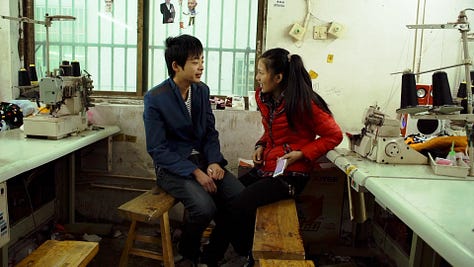
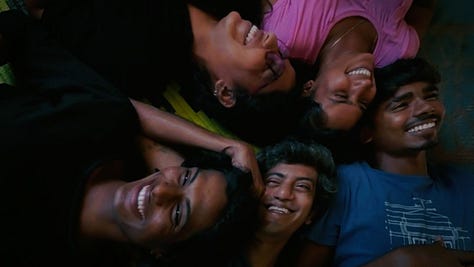
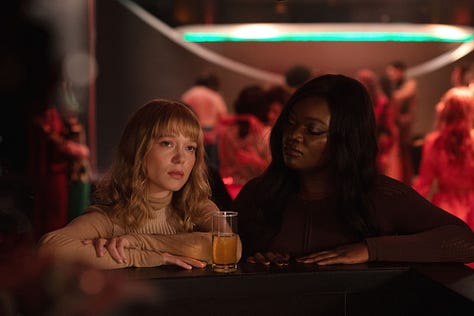
ALEX MOONEY
This year I was lucky enough to not get most of the TIFF tickets I wanted, instead kicking things off a day late with the first collection of Wavelengths shorts. Head curator Andréa Picard opened with a lovely tribute to Canadian avant-garde legend and indefatigable TIFF supporter Michael Snow—whose most famous film gave the fest’s experimental section its title—followed by a surprise screening of his 1967 short Standard Time, a cheeky and exuberant collection of dizzying lateral camera movements that was clearly meant to be at least a little funny but actually just deeply moved me. I wouldn’t have wanted it any other way, even if it was a little unfair to the filmmakers in the actual program to make them the follow-up act to Mr. Wavelength himself. A daunting task for anybody, but Jorge Jácome (Shrooms), Ja’Tovia Gary (Quiet As It’s Kept), and Rose Lowder (Bouquets 31-40, a veteran avant-gardist in her own right) made the best of it. I followed that up with Eduardo Williams’ sweeping and scintillating The Human Surge 3, which follows a group of teenagers literally and forebodingly with a 360-degree camera that surveys and surveils their mundane shenanigans in rapturous, real-time detail.
My second Wavelengths program included a collection of freewheeling shorts by a 17-year-old Chantal Akerman (whose style and gaze were already under lively negotiation), recently discovered and now released as Chantal Akerman: Her First Look Behind the Camera. This was followed by Pedro Costa’s three-screen mini-musical The Daughters of Fire, which (according to his Q&A that I was devastated to miss) was a test-run for a feature film that I, for one, cannot wait to see, as well as the late Jean-Luc Godard’s final project, Trailer for A Film That Will Never Exist: Phony Wars (the less said about it the better, which I mean in the best, most confounded way possible).
The first real duds came the next day with Hirokazu Kore-eda’s Monster, which pissed off the former baby queer in me, and Harmony Korine’s Aggro Dr1ft, which was pretty much what you’d expect from a production company called EDGLRD. Similar disappointments came from Isiah Medina’s impenetrable He Thought He Died—handily upstaged by the phenomenal 3-D short Laberint Sequences (Blake Williams) that preceded it—and Angela Schanelec’s lush and opaque Oedipus adaptation Music.
Shinya Tsukamoto’s Shadow of Fire and Wang Bing’s Youth (Spring), on the other hand, were as good as I’d hoped. Tsukamoto’s style has become almost unrecognizable in the past few decades, but he still conjures an evocative post-war milieu and coaxes a quietly brilliant performance from his child star Ouga Tsukao. Bing’s three-and-a-half-hour documentary about garment workers in Zhili, China is remarkable in its first half for latching onto juicy dramatic threads in workshop scene after workshop scene and mostly remains compelling even as it drifts toward redundancy in the final hour (at least 20 walkouts).
I then stumbled into an apt pairing (connected by a haggard sprint down John Street) of Alice Rohrwacher’s La Chimera and Kleber Mendonça Filho’s Pictures of Ghosts. The former follows a professional grave robber (a ruinously sexy, Italian-speaking Josh O’Connor) as he repeatedly tries and fails to kick his obsession with the past; and the latter documents its filmmaker’s hometown of Recife in Brazil, conjuring the city’s storied cinephilic past with a tossed-off, suggestive touch. Both are hampered by a struggle to anchor their acts of excavation to an emotional/structural core, but they’re affecting because of and in spite of it.
I saved Bertrand Bonello’s The Beast for last because it’s fun to end on superlatives—best of this year’s TIFF, early contender for best of the decade, etc. It cartwheels between melodrama, pseudo-slasher, and sci-fi chamber drama so as to distort our perceptions of the lead couple—who meet again and again in past and future lives—and our relation to the medium itself. At the risk of sounding stupid: it’s like someone transposed Stanley Kwan’s Rouge (1987) over Mulholland Drive (2001). You’ll hear a lot of Lynch comparisons in the build-up to The Beast’s release—all of them warranted—but at the end of the day, it’s Bonello’s crafty, prowling hand that’s on the wheel.
Alex Mooney is a Toronto-based queer writer who is exhausted and well-fed after all the good movies he saw.


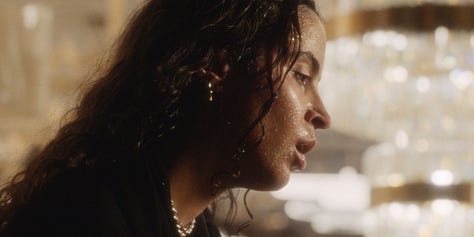
CLEO SOOD
I started my TIFF '23 eight days into the festival, with a surprise ticket to Catherine Breillat’s erotic drama Last Summer. The film—Catherine Breillat’s first in 13 years, her comeback after the semi-autobiographical Abuse of Weakness—is your classic French arthouse film featuring fabulously dishevelled people smoking cigarettes and engaging in extra-marital affairs. Only here, these extra-marital affairs involve a minor and his girlboss attorney stepmother. The film takes advantage of the actors' stellar performances with frequent revealing close-ups. Samuel Kircher’s young lover embodies a teenage essence: compulsive confidence within a fragile frame. He holds his own alongside the striking Léa Drucker who portrays her femme fatale as a sophisticated but reckless woman with a penchant for vintage convertibles. As Dirty Boots by Sonic Youth blasts throughout the film’s runtime—the soundtrack for this illicit affair—it’s clear that Catherine Breillat understands her characters in all their duplicitous dichotomy.
I was lucky to see Meshal Aljaser’s NAGA in its ideal viewing environment: at the Royal Alexandra with the Midnight Madness crowd. I loved that it’s a one-wacky-night picture meets creature feature where the wacky night in question takes place in the desert and that the creature is a camel. And I loved that despite the film’s absurd premise and novel setting, the story hinges on the universal catastrophe that is a dead phone battery. I also loved Adwa Bader in her film debut as Sarah, especially that, in the middle of a stressful situation our formidable female lead is totally faded. And because I love a Hollywood ending, I was content with the movie’s neat little resolution, the way it all falls into place just as quickly as you can wipe the sweat from your forehead.
I’d like to say I had the pleasure of seeing Angela Schanelec’s Music, but the film was so tedious and confusing that I began counting in my head to entertain myself. For instance, I counted four songs in the final act, following an hour of little action and minimal dialogue. And so, I guessed that the screenplay count is something like four pages, maybe seven if Schanelec included emotional cues to show no expression. I counted eleven people who slipped out of the theatre at some point, eight of whom never returned, and although three people did come back, I think when a movie is great, you forget all about your bladder, and you definitely don’t sit there counting. Some post-credits Googling informed me that Schanelec’s film is a modern retelling of the Greek myth of Oedipus. And I may not be like you, sweet film snob who adored this picture, but I’m cultured enough to know Oedipus. And if this film really was an Oedipal allegory, I must’ve missed it due to abhorrent inattention, a sum error in my counting.
I concluded TIFF ’23 with a bang with Dicks: The Musical. Lead actor and writers, Josh Sharp and Aaron Jackson (two unrelated gay men) play identical twins separated at birth, à la Parent Trap, and aggressively heterosexual salesmen, à la numerous films (none of which are a movie musical). As I write this, neither Sharp nor Jackson have a Wikipedia page; yet, the duo obtained backing from A24, got Larry Charles (Borat) to direct, and nabbed performances by Megan Mullally, Nathan Lane, Bowen Yang, and Megan Thee Stallion, who obviously slays a solo musical number. I don’t know how Sharp and Jackson sold themselves and their silly film to such notable players, but Dicks: The Musical is an immediate cult classic. “Sewer Boys” is a term that’ll enter the youth lexicon; it’ll sweep the digital nation. I’m sure of it! This film delivers on dicks, but what’s more, it goes a step further and throws you a vagina. Watch, and you’ll see.
Cleo Sood hates writing but she loves having written something.
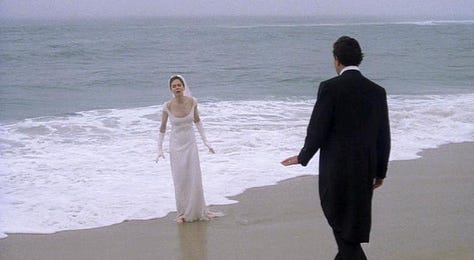
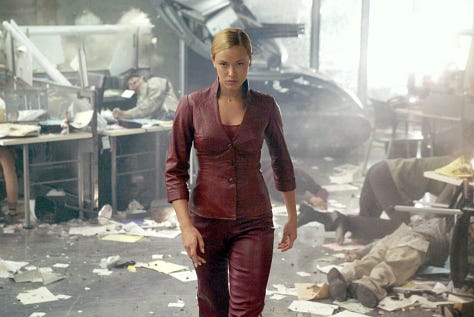
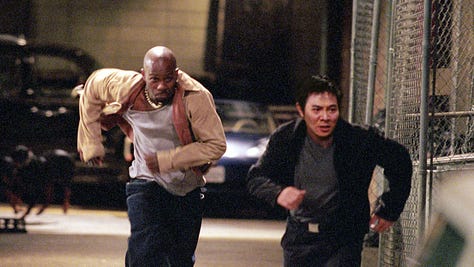
SENNAH YEE
What I Watched Instead of TIFF
Birth (2004)
To make up for missing The Zone of Interest at TIFF… Gabrielle said that I’d love it, and she was right! I caught myself with my mouth agape throughout—especially the ending, with the assembly line of kids, Sean included, getting their school pictures taken. Then Anna and Joseph on the beach in their wedding outfits, cold and wet and whispering.
Terminator 3: Rise of the Machines (2003)
This wasn’t nearly as bad as I thought it’d be! I loved that they fully leaned into T-800’s love for leather being pretty gay with him stealing a male stripper’s outfit. And T-X was very fun as a cyborg baddie who makes her boobs bigger to avoid arrest. Actress Kristanna Loken was trained by a mime coach for her robotic movements—an eerie loop of human mimicking human mimicking robot, to convincingly appear as a robot mimicking human. I also loved the detail of how during T-800 and T-X’s final fistfight, they’re beating each other up to chrome shreds but the soundscape is strangely silent. And then it sinks in: neither are grunting or screaming in agony post-punch, because they can’t feel pain.
Robocop 2 (1990)
Continuing my robo-sequels… also not as bad as I thought it’d be! Very memorable images like RoboCain’s CGI head thrashing about a screen, and his brain, spinal cord, and buggy eyeballs floating untethered in a tank. Also, the fake TV ad for Sunblock 5000 was a little too real…
Cradle 2 the Grave (2003)
I couldn’t miss Black Belt Cinema’s 20th-anniversary screening at the Revue Cinema! Jet Li and DMX clearly riding the Rush Hour wave here, and I’m all for it. DMX escapes the cops on an ATV while his own music plays in the soundtrack. Jet Li trampolines off a fallen chain link fence and defeats a dozen MMA fighters in an underground ring. Gabrielle Union says, “Change of plans, he’s gay” after trying to distract a security guard during a heist, making Anthony Anderson go in her place. And then, a truly dazzling ending featuring a villain force-fed a radioactive pill: light beams blasting out of his eye sockets and mouth, shortly before his body disintegrates in a ring of fire. I’ve been listening to DMX nonstop since, and am window shopping online for leather jackets and tiny sunglasses.
Borat (2006)
After nearly half a lifetime of hearing “my wiiiife” and “NOT!” jokes by my likely-now-cancelled class clown crushes, I have finally watched this at the tender age of 30. I then learned this premiered at TIFF, with Sacha Baron Cohen arriving in character in a cart pulled by women dressed as peasants. The projector then broke 20 minutes into the screening, leading to an impromptu Borat comedy bit and an informal Q&A between the director Larry Charles and filmmaker Michael Moore. Michael also apparently tried to fix the projector—which, after an hour of the audience waiting, was officially declared broken. And that’s my Wikipedia-sourced, decade-old TIFF tea!
Sennah Yee is the author of How Do I Look? and My Day With Gong Gong.
Wondering what to watch?
Choose a mood on our Film Recommendation Generator and get a curated pick from writers, filmmakers, poets, and artists.
Donate
If you’d like to donate to our mag you can do so through our PayPal! We're volunteer-run, and donations go directly to the mag and contributor honorariums.





